Latest News
Innovative Opportunities for Entrepreneurship
Posted by on October 20, 2014 at 2:00 PM EST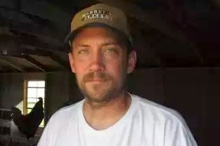
Dan Hromas is being honored as a Disability Employment Champion of Change.
I am the owner and operator of Prairie Pride Poultry, a small pastured chicken operation located on the northeast edge of York, Nebraska. I started the farm in 2013 in order to support the growing local food movement by providing healthy, farm fresh eggs to area consumers.
At the farm, we pride ourselves on the humane treatment of the flock of heritage Rhode Island Red chickens. The farm’s standards and practices are conducive to a happy and healthy flock. Coops are moved around the acreage, each one having plenty of floor area, roosting space, and nesting boxes. The flock’s pasture diet is supplemented with feed that does not contain any chemicals, hormones, antibiotics, or animal byproducts; the feed comes from only 14 miles away from a cooperative that has recently achieved HACCP Certification, the highest level of accreditation for food safety in the United States.
In addition to providing the local community with farm fresh eggs, Prairie Pride Poultry also assists in educating consumers and potential farmers about the “Incredible Edible Egg” by sharing interesting facts and information about the widely used and versatile protein source, as well as fostering an environment whereby everyone can feel welcomed at and connected to the farm. I’ve engaged local communities through the York Chamber of Commerce, establishing a great working relationship with Grand Central Grocery in York and participating in the Center for Rural Affairs’ “Farm to School” initiative by selling eggs to York Public Schools, setting up at local farmer’s markets, and raising awareness about importance of a healthy diet that can include eggs.
Before working on the farm, I served in the U.S. military in Iraq. I have also served as a Captain in the Nebraska Army National Guard as a Transportation Corps Officer. I am fortunate enough to have had my hard work receive national recognition through the Farmer’s Veteran Coalition’s national marketing campaign, “Homegrown by Heroes.” I have utilized services from the Nebraska Sustainable Agriculture Society, Center for Rural Affairs, and the Farmer Veteran Coalition as a platform for outreach to other fellow disabled military veterans so that they know a future exists for them in the field of agriculture.
I am honored to receive this Champions of Change award. I hope that other veterans with disabilities will similarly find their own entrepreneurship opportunities, gaining meaningful employment and contributing to their local communities.
Dan Hromas is the owner and founder of Prairie Pride Poultry, a pasture-raised egg business in York, Nebraska.
Learn more aboutHands On @ Hyatt – A Public-Private Partnership That Works
Posted by on October 20, 2014 at 2:00 PM EST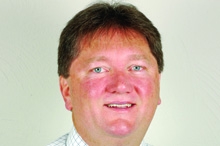
John Ficca is being honored as a Disability Employment Champion of Change.
As the Director of Hands On Education, it is an honor to accept this recognition on behalf of our program and our partners—Hyatt Hotels and State Vocational Rehabilitation agencies funded by the U.S. Department of Education. I owe the program’s success to a unique public-private partnership and to our focus on the individuals that we serve.
Hands On @ Hyatt is a state-funded training program that prepares individuals with disabilities for employment in the hospitality industry. Our students are paid employees of Hyatt and learn from some of the best chefs and managers in the industry. Graduates leave with increased confidence, employability skills, a certificate of completion, and the ability to use Hyatt as a recent employment reference.
The program began in 1998 at the Grand Hyatt in Tampa Bay. The Florida State Division of Vocational Rehabilitation (DVR) took a chance and funded the program on a fee-for-service basis. DVR’s mission is to help individuals with disabilities get a job, keep a job, or return to work. Our challenge, then, was to prove that people with disabilities could be successfully employed in this work environment. The first summer of our program was incredible—all of our students obtained employment.
Our Hyatt partners began asking why we just trained in the kitchen. “Why not other departments? Why are we just training at one Hyatt Hotel? Why not Orlando and Miami?” 16 years later, Hands On @ Hyatt is operating in 32 Hyatt Hotels in states all across the country.
Thanks to the Council of State Administrators of Vocational Rehabilitation (CSAVR), our expansion has been a relatively easy process. CSAVR is a professional organization made up of VR Directors in all 50 states, Washington, D.C., and the territories. This includes the Directors of the vocational rehabilitation agencies that serve individuals who are visually impaired. CSAVR sponsors the National Employment Team, and they have been extremely involved with every new Hands On @ Hyatt location. Also, local school districts have helped us identify youth who could benefit from this type of training.
To date, the partnership has trained over 1,500 individuals with disabilities and observed above average post-training employment outcomes. It is with great pride that I accept this award on behalf of our program, our partners, and the individuals that we serve.
John Ficca is the founder and Program Director of Hands On Educational Services, Inc.
Learn more aboutInclusion Is Imperative in Today’s World
Posted by on October 20, 2014 at 2:00 PM EST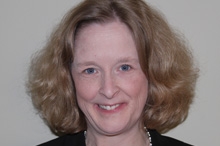
Angela Mackey is being honored as a Disability Employment Champion of Change.
As an individual with a disability, I know all too well the barriers that those in this segment of our society face. Historically, opportunity and disability seldom go hand-in-hand. I grew up with a grandfather who also had a disability, and I learned that others sometimes used his disability as a reason for exclusion from privileges such as education, a meaningful career, and social acceptance. Being around him as a child, I knew the barriers I would also one day face. The conversations growing up between myself and my grandfather were motivational exchanges, in which he listened to me recite my goals for the future and, in response, offered words of encouragement regarding them coming to fruition. I often wonder what my fate might have been without those interactions.
I was fortunate. At an early age, I understood that through my own determination, hard work, and God, I could be more than just a person with a disability. I also knew that with an education, and eventually a career, I would have a voice. Without a job, I knew that it would be extremely difficult for me to feel like I was in control. In my mind, work equated to personal power. Work, in a lot of ways, leveled the playing field. I might not have the ability to run a mile or score a homerun, but I could operate a computer system with the best of them.
This ideology is why I believe inclusion is so imperative in today’s world of work. I often tell those I train that I am just as capable as someone without a disability, but until I am provided an opportunity to show what I can do, nobody believes it. Luckily, I have had two organizations, South Carolina Vocational Rehabilitation and Walgreens, to open their doors to me to show what I can do, and in doing so, I have assisted others in doing the same. Inclusion does not mean that we want an easier job or a different set of standards. We just want a chance to enter the door like anyone else.
Angela Mackey is a Human Resources Generalist at the Walgreens Distribution Center in Pendergrass, Georgia.
Learn more aboutDisability Is My Strength
Posted by on October 20, 2014 at 2:00 PM EST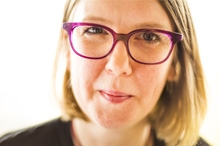
Jenny Lay-Flurrie is being honored as a Disability Employment Champion of Change.
As a person with a disability who is passionate about enabling others with disabilities, I am humbled and honoured to be a White House Champion of Change.
My journey with disability started early. By the age of 5, my hearing was already declining, a process that would continue over the next 30+ years. As a teenager and even through most of my twenties, I felt that I needed to hide my disability. My hearing loss is now profound, but by asking for the help I need and seeing my disability as a strength, I have been able to make myself – and now my employer – stronger. I am fortunate to work for a company that empowers and enables people to be successful. I wake up excited every morning, eager to get to work. I’m lucky to be in a position to make a difference, and this fact drives me to do more every day.
I am a Senior Director at Microsoft, leading the Trusted Experience Team (TExT), which focuses on privacy, online safety, and accessibility. Our goal is to provide a positive experience for all customers. As with any great journey, mine started by taking big terrifying steps. The first was to identify to Microsoft as a person with a disability. I joined the deaf ‘huddle’ group at Microsoft and went on to create and lead the DisAbility Employee Resource Group (ERG), a community of amazing people with disabilities, advocates, colleagues, and parents who share best practices and elevate understanding. At our first annual ‘Ability Summit’ four years ago, 80 people showed up. This past spring, 800 people came to Redmond headquarters to spend the day, which featured our CEO Satya Nadella, Washington Governor Jay Inslee, and many others. The theme of the summit was “Imagine, Build, Enable,” and we have taken that to heart at Microsoft.
In 2012, we announced the Disability Answer Desk (DAD), providing specialized support for customers with disabilities. Today, DAD helps about 4,000 customers a month do more with Microsoft products and services. The team is made up of talented people both with and without disabilities. In addition, I work with the Washington State Disability Taskforce, a public-private group focused on driving representation of people with disabilities in state government to at least 5%. Lastly, I sit on the US Business Leadership Network (USBLN) board of directors, which works towards disability inclusion in the workplace. It’s more “than just doing the right thing;” it’s about enabling people to be successful and achieve their dreams. It’s about changing lives, just as mine was changed.
At Microsoft, we are imagining and building technology for people with disabilities. During our company-wide ‘Hackathon’, we had projects focused on improving technology for people with deafness, blindness, autism, and more. Out of nearly three thousand submitted “hacks,” six of these projects placed in the top 100. I’m most proud of our work with former NFL player Steve Gleason, who is living with ALS, to help create prototype technology to independently move a wheelchair via eye tracking. This work won the 2014 Microsoft Hackathon Grand Prize!
My disability motivates me to strive for a higher bar—a new level of independence and empowerment. It helps me to understand and have empathy for our customers. I work to drive this understanding into Microsoft to create better products. So go on, if you want to know more about your customers, take that step and hire a person with a disability. They’ll teach you all you need to know.
Jenny Lay-Flurrie is a Senior Director at Microsoft, leading the Trusted Experience Team (TExT).
Learn more aboutWe Can All Be Change Leaders: Employing People with Many Abilities
Posted by on October 20, 2014 at 2:00 PM EST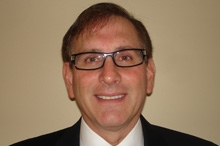
David Bartage is being honored as a Disability Employment Champion of Change.
I am surprised and incredibly honored to be recognized as a White House Champion of Change for Disability Employment. What began as a small project has led to be my passion, encouraging businesses to find good-paying and sustainable employment opportunities for people with disabilities.
In 2010, the Procter & Gamble (P&G) site in Auburn, Maine, began planning to add a customization (FlexiCenter) center into their 24/7 manufacturing operation. During our initial discussions, we discussed how we should staff this center and quickly concluded that we should reapply a staffing model we saw at Walgreen’s Distribution Center, in which 30% to 40% of the employees were people with disabilities.
A local hiring agency for people with disabilities recommended me to reach out to the Maine Bureau of Rehabilitation Services (ME BRS) to develop strategies to integrate individuals with disabilities into our new customized packaging facility, the FlexiCenter. P&G and ME BRS partnered together to identify people with disabilities, the individuals were trained and assessed by ME BRS, and they were then re-assessed in the P&G workplace. ME BRS also worked with our manufacturing site, providing training to all our employees to better prepare us to encourage and support inclusion in the workplace.
Today, more than three years after opening the doors to the FlexiCenter, 40% of the FlexiCenter employees are individuals with disabilities, working alongside workers who have not disclosed any disability, performing the same jobs with the same expectations and same pay. Some of the benefits of the FlexiCenter include: increased productivity, zero safety incidents, zero quality incidents, 90% reduction in turnover, a significant improvement in morale, reduced hiring costs, reduced training costs, and increased “goodwill” in Maine.
As I was getting involved with our FlexiCenter, I worked with the Maine State Chamber of Commerce, the Maine Department of Health and Human Services, and the ME BRS to start up the Maine Business Leadership Network (ME BLN). Since its inception, I have been the business leader of the ME BLN. The ME BLN is a state affiliate of the United States Business Leadership Network (USBLN). The ME BLN offers member employers resources for recruiting candidates with disabilities, information on disability issues, recognition for best disability employment practices, and exposure to an untapped market for their goods and services. We also view our role as that of a catalyst and a "connecting point" to promote dialogue and sharing of best practices between employers in a peer-to-peer setting.
Upon meeting someone for the first time, we are often times asked, “What do you do?” When asked that question, I imagine that for many the first response is what you do for a living. We take a lot of pride in what we do, and it helps to define who we are. It gives us an identity.
Over the last several years, I have seen what employment opportunities have done for our P&G employees with disabilities. It has given them an identity. It has provided them with an opportunity to be integrated into everyday life. It has impacted the employee and the employee’s family. I have heard parents thank us for giving their child an opportunity to work. They have expressed concern that they felt they had to outlive their child to provide them support. They now have hope that their sons and daughters can make it on their own.
What started as a project has turned into a passion for helping others and spreading the word of sustainable employment opportunities for people with disabilities. I encourage you to get started and make a positive change in your own way.
David Bartage is the Plant Finance Manager for the Procter & Gamble, Auburn, ME facility leading the Auburn sites’ efforts in hiring people with disabilities.
Learn more aboutProtecting the San Gabriel Mountains for Future Generations
Posted by on October 20, 2014 at 9:12 AM ESTThis op-ed by President Obama was published in Spanish on La Opinión. You can read the original op-ed in Spanish HERE.
One hundred and fifty years ago, President Lincoln signed a law that forever changed the way we conserve our natural heritage. It might have seemed an odd thing to do at the time. We were in the middle of the Civil War. The fate of our union hung in the balance. Lincoln himself had never even been to California; for a good part of his life, his home state of Illinois was the West.
But descriptions, drawings, and even some early photographs of the Yosemite Valley had made their way back East – as had stories about encroaching development that threatened the area. So President Lincoln decided to help protect a place he had never visited, for a nation he might not be able to save. In the darkest of days, he decided to bet on a future he would never live to see. And because he did, generations of Americans have known the wonders of Yosemite National Park.
That’s why, last week, I visited California to designate the San Gabriel Mountains a National Monument. This action will permanently protect more than 346,000 acres of rugged slopes and remote canyons that are home to an extraordinary diversity of wildlife and attract more than three million visitors every year – more than icons like Mount Rushmore and Grand Teton National Park.
What’s more, the San Gabriel Mountains contain millennia of history, from the ancient rock art of Native Americans to the Mount Wilson Observatory where Edwin P. Hubble showed the universe to be ever-expanding – and where astronomers explore the mysteries of space today.
In many ways, the story of the San Gabriel Mountains is the story of America. It’s the story of communities living in the great west – of Native Americans and Spanish missionaries, of colonialists and rancheros, of merchants and landowners. It’s the story of prospectors in search of gold; of settlers in search of a new life.
That story continues today – and it’s being written by one of our nation’s most vibrant, diverse communities, in the backyard of the second-biggest city in the country. Over fifteen million people live within 90 minutes of the San Gabriel Mountains. The mountains provide residents with roughly 30 percent of their water and 70 percent of their open space. The whole area is a huge boost to the local economy.
In fact, we heard from the community that for a lot of urban families, the San Gabriels are their only big, outdoor space. Too many children in L.A. County, especially Latinos and children of color, don’t have access to parks where they can run free, breathe fresh air, experience nature, and learn about their own environment.
It’s not enough to have that awesome natural wonder within sight. Everybody, no matter where they come from, or how much money they have, or what language they speak, should be able to access and experience it. Right now, campgrounds are crowded, parking lots are tight, and there haven’t been enough resources to manage and maintain this area the way it deserves. Designating the San Gabriel Mountains as a National Monument was just the first step in a broader effort to change that. It will enable the Forest Service, local communities, and leading philanthropies to work together to increase access and outdoor opportunities for all.
Because America belongs to all of us. That’s why, as President, I’ve preserved more than three million acres of public lands for future generations, and I’m not finished. My commitment to conservation isn’t about locking away our national treasures. It’s about working with communities to open our glorious heritage of nature to all Americans.
The San Gabriel Mountains National Monument will join a vast landscape of protected natural treasures – a wilderness that the writer Wallace Stegner once called, “a part of the geography of hope.” As Americans, we’re blessed with the most beautiful landscapes in the world. And we’re bestowed with the responsibility to preserve our magnificent natural inheritance, and ensure that this “geography of hope” remains the birthright of all Americans – not only for today, but for generations to come.
Learn more aboutWomen Are the Past, Present, and Future of American Agriculture
Posted by on October 17, 2014 at 1:20 PM ESTFrom historic homesteaders to contemporary cattle ranchers, women have been the cornerstone of America’s agriculture heritage. We’ve produced food to feed our families, feed our neighbors, and to feed the world.
The 2012 Census of Agriculture notes that nearly 1 million women are working America’s lands. That’s nearly a third of our nation’s farmers. These women are generating $12.9 billion in annual agricultural sales.
Farm work isn’t the only way women are contributing to agriculture. We are scientists, economists, foresters, veterinarians, and conservationists. We are in the boardrooms and the corner offices of international enterprises, and are the owners and operators of small businesses. We are property owners and managers. We are policymakers and standard bearers. Women are increasingly involved in every aspect of agriculture.
Learn more about RuralExpanding Opportunities for All: The Obama Administration Celebrates Hispanic Heritage Month
Posted by on October 16, 2014 at 10:46 AM ESTYesterday marked the end of a month-long celebration of Hispanic Heritage Month across the Obama Administration, an opportunity to reflect on the invaluable contributions the Hispanic community has made to our nation’s rich diversity.
At the beginning of October, President Obama delivered a speech at the Congressional Hispanic Caucus Institute 37th Annual Gala. At the event, the President discussed important milestones that Latinos have reached recently: the high school dropout rate amongst Latinos has been cut in half
,and Latino unemployment continues to decline. The President also reaffirmed his support for commonsense immigration reform and emphasized that he would take executive action, within the scope of his authority, to fix our nation’s broken immigration system by the end of the year. Director of the White House Domestic Policy Cecilia Muñoz spoke to the National Association of Latino Elected and Appointed Officials about the Administration’s education priorities and initiatives to help more Latinos gain access to high-quality education.The President’s Administration understands that the success of our country is inextricably linked to the success of the Hispanic community and has dedicated countless resources to ensure a bright future for our nation’s Latinos, and all Americans. To reaffirm this commitment, the Administration’s Cabinet Secretaries participated in conferences, roundtables, and policy forums to highlight the impact our Administration on improving the everyday lives of Latinos throughout Hispanic Heritage Month. Housing and Urban Development Secretary Castro spoke at the Bipartisan Policy Center’s Housing Summit and laid out his priorities of boosting homeownership and helping to lower rent costs to make it easier for millions of Latinos to achieve the American Dream. Small Business Administrator Maria Contreras-Sweet hosted a roundtable with Latino business owners at the White House to discuss strategies for enhancing small business development and sustainability, given that Latinos are the fastest growing segment of people starting small businesses in the United States. Health and Human Services Secretary Sylvia Mathews-Burwell hosted Latino leaders at HHS to discuss ways to increase Latino enrollment during the upcoming open enrollment period for the Health Insurance Marketplace. These are just a handful of the Administration-wide efforts this year to not just recognize the contributions of Latinos but to make sure we have a seat at the table.
Additionally, to honor this country’s everyday heroes, the White House celebrated the hard work and dedication of Latino educators who are doing extraordinary work in their communities to educate the next generation of Americans. The White House honored these 10 individuals as “Champions of Change.”
To celebrate diversity within the Administration, Univision Noticias launched a special series on their website called “Los Hispanos del Presidente” (“The President’s Hispanics”), which highlights the important contributions Latinos make in the Administration. This piece featured 15 influential Hispanic White House staffers, who shared stories about their Hispanic heritage, childhood, path to the Administration, and how their work impacts Latino communities. This full digital view book is available online and across Univision’s social media platforms, but also aired on their Sunday morning and nightly news programs.
Finally, the Administration has also celebrated Hispanic leaders across diverse disciplines, such as Carlos Vives, the International Development (USAID) Inclusion Ambassador and popular Latin pop and vallenato singer and song writer. Vives has helped the Administration promote diversity and inclusion in Colombia year-round.
Hispanic Heritage Month celebrates the legacy of the Hispanic community. Expanding from a small, regionally concentrated population of about 6 million in the 1960s, to a now a vibrant presence of 50 million Latinos across the country, Latinos will continue to enhance our country’s progress, and make an indelible mark on our future for generations to come.
Katherine Vargas serves as the Director of Hispanic Media at the White House
- &lsaquo previous
- …
- 18
- 19
- 20
- 21
- 22
- 23
- 24
- 25
- 26
- …
- next &rsaquo


Twitter